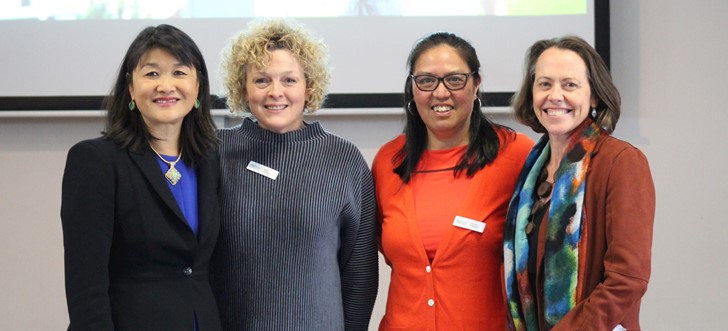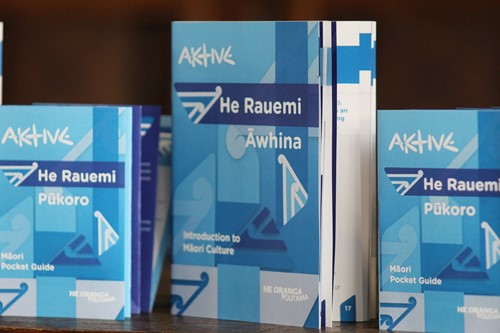Cultural intelligence think tank on sport well received

More than 70 sport and recreation leaders recently attended the inaugural Tāmaki Makaurau: today and tomorrow – leading diversity and inclusion in sport event, co-hosted by Aktive, AUT Sports Performance Research Institute New Zealand (SPRINZ) and the Superdiversity Institute for Law, Policy and Business (Superdiversity Institute) at Te Mahurehure Cultural Marae.
The cultural intelligence (CQ) event included a presentation from Mai Chen, Chair of the Superdiversity Institute and Managing Partner of Chen Palmer Partners, and a panel session featuring other diversity thought leaders moderated by Professor Lesley Ferkins, Director, AUT SPRINZ.
The event also saw the launch of cultural capability videos and Māori cultural resources (available here), as well as a special sector offer for the CQ Tick which measures an organisation’s existing level of cultural intelligence and capability so gaps and strengths can be identified, addressed and built on to increase CQ.
Dr Sarah Sandley, Chief Executive, Aktive says there is considerable value in discussing diversity and inclusion and how sport can better engage and embrace the many communities in Tāmaki Makaurau.
“Auckland is one of the world’s most diverse cities and has a strong bicultural foundation,” says Dr Sandley. “We recognise that the sport and recreation sector plays an important leadership role in connecting and engaging our diverse communities, promoting cross-cultural understanding and social harmony.”
“To achieve success, the sector must continue to adapt to Auckland’s diversity and we want to provide practical advice, tools and resources to help with this.”
Ms Chen applied a superdiversity lens to sport, and shared her extensive cultural capability expertise and experience: “Cultural intelligence is imperative if we want to effectively relate to New Zealanders of other cultures, languages and religions. In a sport and recreation setting, this is critical as these people are our volunteers, players, coaches, supporters and funders now and in the future. If we cannot engage them in our organisations, then they will set up their own.”
The role and value of cultural intelligence was further highlighted in a series of videos featuring Ms Chen and focusing on the concepts of CQ, unconscious bias and diverse thinking. In addition, the Superdiversity Institute extended a special CQ Tick offer to the sector. The CQ Tick is a measurement of the existing level of cultural intelligence and capability by asking each staff member to complete a survey about their own and their organisation’s cultural intelligence and capability. The Superdiversity Institute then analyse the results and identifies gaps and strengths.

The panel session provided attendees with an additional opportunity to unpack diversity and inclusion in sport. Moderated by Professor Ferkins, it comprised Kristy Hill, Iwi Engagement and Policy Specialist and former NZ Football Fern; Glenn Flavell, Club President and Chairman, Ardmore Marist Rugby and Sports Club; and Dr Michele Cox, CE, New Zealand Football Foundation and former NZ Football Fern.
“This inaugural event provided valuable discussion and practical ideas to build CQ across the sector,” says Dr Sandley. “We look forward to hosting future think tanks with partners AUT and the Superdiversity Institute.”
The Māori cultural resources and the cultural capability videos are available here, along with information on the CQ Tick.




